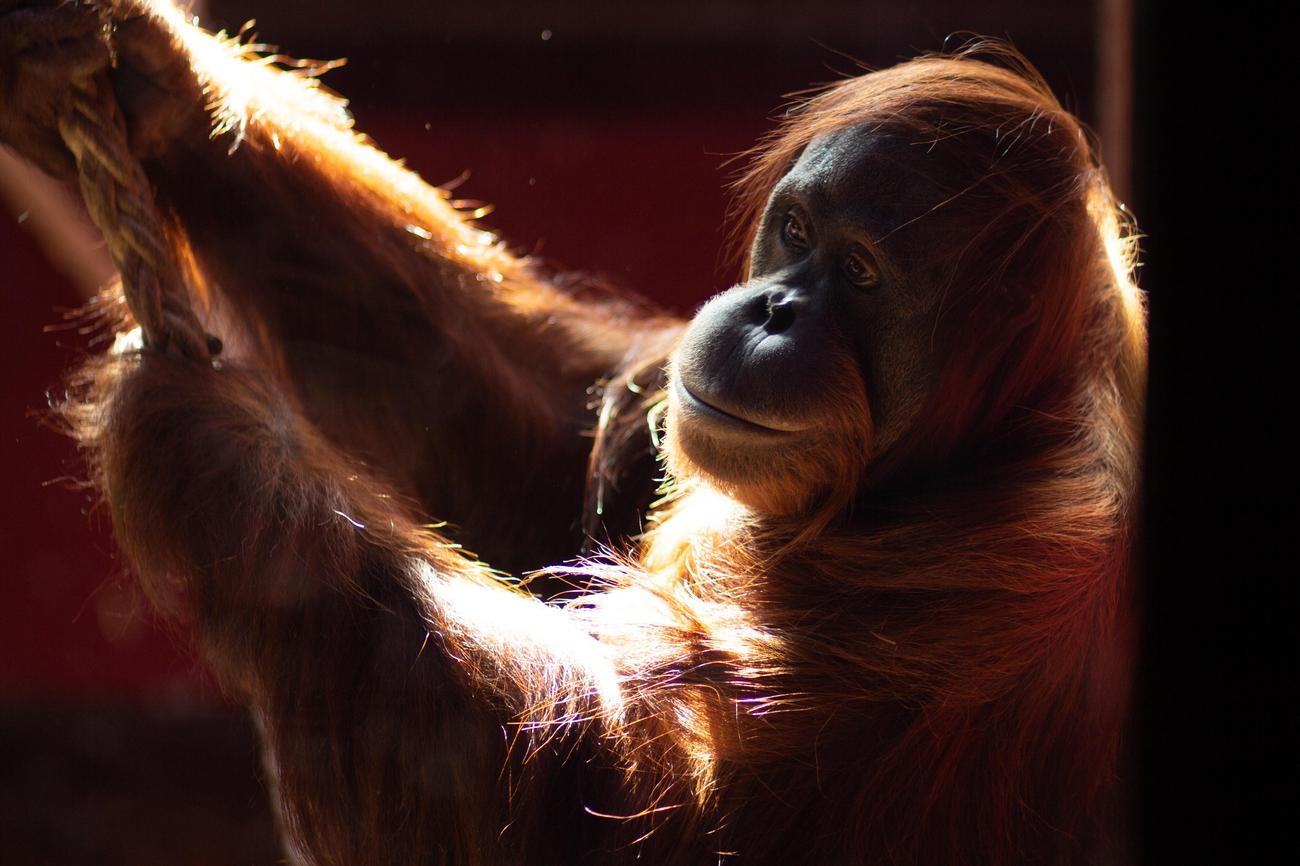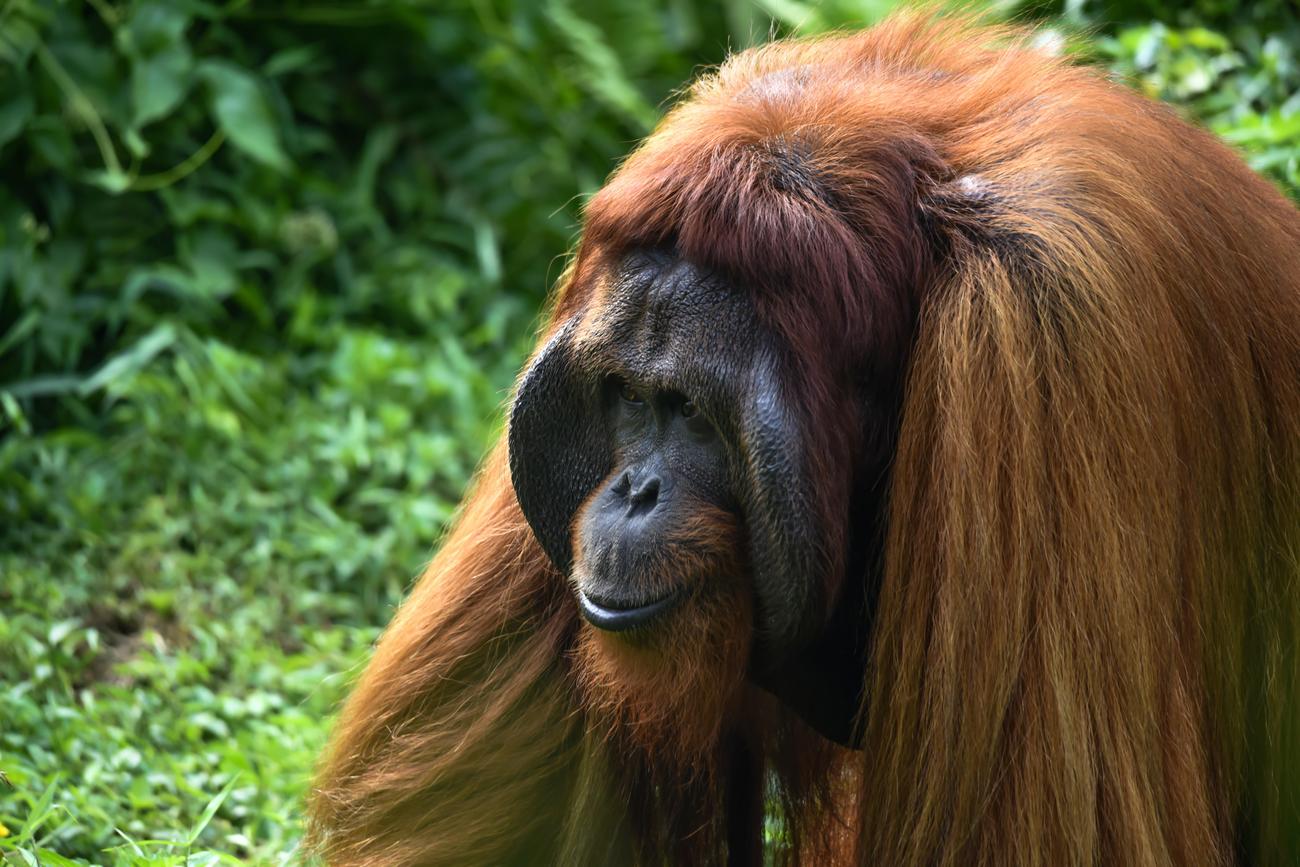In a world filled with lush rainforests and awe-inspiring creatures, one species stands at the brink of extinction: the orangutans. These majestic primates, known for their striking resemblance to humans, are facing unprecedented challenges as their natural habitat dwindles and their survival hangs in the balance. It is with great urgency that we delve into the plight of orangutans, exploring the critical need for immediate conservation efforts to protect these endangered creatures from the edge of oblivion.

Orangutans Endangered
Deforestation, poaching, and climate change have placed orangutans in grave danger. With three species – the Bornean, Sumatran, and Tapanuli – all facing dire circumstances, urgent conservation efforts are needed to protect these magnificent creatures and their vanishing habitats.
The Devastating Effects of Deforestation
Deforestation, particularly in Sumatra and Borneo, is the primary contributor to the endangerment of all orangutan species. The relentless pursuit of profits has led to a rapid expansion of the palm oil industry, causing illegal logging and habitat loss. As a result, orangutans are losing their homes at an alarming rate.
“Deforestation in Sumatra and Borneo is pushing orangutans to the brink of extinction, leaving these gentle creatures with nowhere to go.”
The Plight of the Bornean Orangutan
Among the three species, the Bornean orangutan is the most severely impacted. Its population has plummeted by over 80 percent since the mid-20th century. This alarming decline has earned the Bornean orangutan the critically endangered status. Conservation efforts must be intensified to reverse this devastating trend.
“The Bornean orangutan population is rapidly dwindling, signaling an urgent need for immediate action to protect these incredible creatures.”
The Role of the Palm Oil Industry
The exponential growth of the palm oil industry poses a grave threat to orangutans. The demand for palm oil, used extensively in various products such as cooking oil, cosmetics, and biofuel, drives illegal logging and rampant deforestation. The profits generated from this industry come at the expense of orangutans and their fragile habitats.
“The palm oil industry’s relentless quest for profits is leaving a trail of destruction in its wake, decimating orangutan habitats and driving these magnificent creatures towards extinction.”
Conservation Efforts and Hope for Orangutans
Fortunately, dedicated organizations like the WWF and the Orangutan Foundation are leading the charge in orangutan conservation. Through their tireless efforts, awareness is being raised, and vital initiatives are being undertaken to protect orangutans and restore their habitats. Collaborative action is essential to ensure the survival of these incredible creatures.
“While the future of orangutans hangs in the balance, there is still hope. Conservation organizations are working tirelessly to turn the tide and secure a brighter future for orangutans.”
Orangutans as Ecosystem Stewards
Orangutans play a crucial role in maintaining forest ecosystems. As the largest arboreal mammals, their interactions with their surroundings have far-reaching effects. Their dispersal of seeds and creation of nests contribute to the regeneration and diversity of forested areas. By conserving orangutans, we are also protecting the delicate balance of our forests.
“Orangutans are not only charismatic creatures, but they are also vital stewards of forest ecosystems. Preserving their habitats is paramount to safeguarding the health and biodiversity of our planet.”
With orangutans teetering on the brink, we must act swiftly and decisively to protect them from extinction. By understanding the challenges they face and mobilizing conservation efforts, we can make a difference. Together, we have the power to ensure a future where orangutans thrive in their natural habitats.
“The clock is ticking, and the fate of orangutans rests in our hands. It is our responsibility to act now and secure a future where these incredible creatures can thrive.”
Orangutans are magnificent creatures that are facing a dire future. The question of “Why Are Orangutans Endangered?” lingers in the minds of many. The truth is, these incredible primates are threatened by habitat loss due to deforestation and illegal hunting. Their home in the rainforests of Borneo and Sumatra is being destroyed at an alarming rate. By clicking on this link, you can explore the reasons behind this alarming issue and learn how we can all take action to protect these amazing animals. So, why wait? Delve into the world of orangutans and discover why their conservation is crucial to maintaining biodiversity on our planet. Let’s make a difference together by understanding “Why Are Orangutans Endangered” and taking steps to ensure their survival. To learn more, visit: Why Are Orangutans Endangered.
FAQ
Question: What are the main reasons for the endangerment of orangutans?
Answer: Orangutans are endangered primarily due to deforestation caused by logging, particularly for palm oil production, paper, and pulp. The rapid expansion of the palm oil industry has led to illegal logging and habitat loss, which is extremely harmful to orangutans.
Question: How many species of orangutan are there?
Answer: There are three species of orangutan: the Bornean, Sumatran, and Tapanuli. The Bornean orangutan is considered endangered, while the Sumatran and Tapanuli orangutans are both critically endangered.
Question: Are there conservation efforts in place to protect orangutans?
Answer: Yes, there are various conservation projects led by organizations like the WWF and the Orangutan Foundation to save orangutans. These efforts focus on protecting their habitats and raising awareness about their critical state.
Question: What is the population status of Sumatran and Bornean orangutans?
Answer: According to the IUCN Red List assessments, there are approximately 14,600 Sumatran orangutans and 104,700 Bornean orangutans remaining in the wild. Both species are facing significant population declines.
Question: Why are orangutans important for forest ecosystems?
Answer: Orangutans play a crucial role in maintaining forest ecosystems. They are the largest arboreal mammals and help disperse seeds as they move through the forest. Their presence is vital for the regeneration and biodiversity of these habitats.
- Georgia Platform: A Southern Strategy, 1850s - March 31, 2025
- How many weeks is 40 days: Quick Conversion Guide for Accurate Results - March 31, 2025
- How many feet is 300 meters? 984 Feet: Understand Length Conversions Easily - March 31, 2025
















